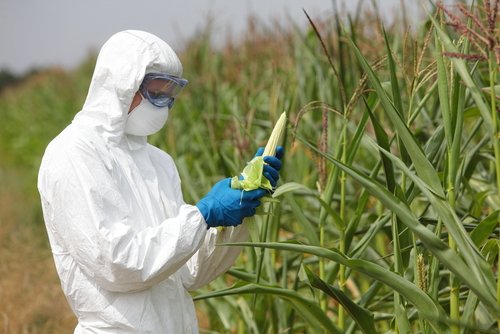Belgium, (Brussels Morning Newspaper) A coalition of over 50 organisations in 17 EU member states have delivered a petition to the European Commission demanding to keep the new generation of genetically modified organisms ‘regulated and labelled’.
The petition ran from April to November 2022 and received 420.000 signatures.
European Commission-president Ursula Von der Leyen announced in her last state of Union speech as well as in the 2023 Work programme that a legislative proposal on what is being called ‘new genomic techniques’ (NGTs such as Crispr cas) would be launched.
This proposal is expected to be announced on June 7 and is expected to exclude new GMOs such as crispr cas, from the approval processes of the existing EU GMO legislation.
Commenting on the issue on Tuesday, Clara Behr, Head of Policy and Public Relations the Biodynamic Federation Demeter International said: “Excluding new GMOs would prevent farmers, food producers, retailers, and citizens from opting for GM-free choices.
“We have the right to decide what we eat and grow in our fields.”
The organisers of the petition claim that there is “overwhelming support” from EU citizens and independent scientists to keep the new generation of GM products regulated with requirements around biosafety assessment, traceability and labelling, in line with the precautionary principle.
Further comment comes from Mute Schimpf, food and farming campaigner at Friends of the Earth Europe, who said: “The European Commission seems ready to gamble with our food, but the European Court of Justice’s 2018 ruling makes it clear that the so-called ‘new genomic techniques’ are in fact GMOs and should remain regulated under the current GMO law.
“European decision-makers must echo this ECJ ruling and uphold mandatory safety checks, transparency and labelling for all GMOs to guarantee to protect consumers and farmers’ right to choose what they eat and grow.”
Elsewhere, Madeleine Coste, policy officer at Slow Food Europe, said: “There is no scientific consensus on the safety of these new products. So, it makes common and scientific sense that all GMOs undergo a strict safety evaluation and be labelled as genetically modified, to ensure transparency throughout the whole supply chain for citizens and farmers.
“Also, more research must be carried out on the environmental, biodiversity and health risks of new GMOs, on their socio-economic impacts for farmers and the food system, and on the development of detection methods.”
More comment came from Nina Holland, a researcher at CEO, who told this website: “A few big chemical and seed corporations are pushing the EU to allow new GMOs onto the market unchecked.
“These companies have been lobbying the European Commission for years to exclude new GMOs from the EU regulation, making unsubstantiated claims on the supposed benefits for sustainability. But as they also hold patents on the seeds engineered with these techniques, their true motivation remains to increase their profits.”




